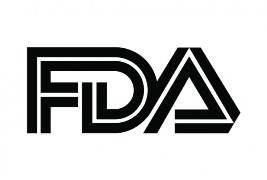 When the FDA turns away a potential new treatment, it sends the drug's maker what's called a complete response letter, detailing all the deficiencies that led to the rejection. Those forms aren't public, but most companies issue press releases describing their contents. However, as a new study reveals, there's often a wide gap between the FDA's actual issues and the sponsors' spin.
When the FDA turns away a potential new treatment, it sends the drug's maker what's called a complete response letter, detailing all the deficiencies that led to the rejection. Those forms aren't public, but most companies issue press releases describing their contents. However, as a new study reveals, there's often a wide gap between the FDA's actual issues and the sponsors' spin.
In a study published in the BMJ this week, FDA staff rounded up 61 complete response letters, or CRLs, from 2008 to 2013, and cross-referenced them with their resulting press releases (when available) to see how well each statement matched up in content and tone. The results: 21% of press releases had nothing in common with their CRLs, and only 14% of total statements corresponded to what the FDA actually said.
Furthermore, looking at the 32 CRLs that asked companies to conduct new trials before reapplying, only 59% of associated press releases bothered to disclose that, according to the study. Seven FDA letters pointed to higher mortality rates among patients treated with the candidate drug, but only one resulting press release divulged that information.
To be fair, the study authors note, CRLs are dossiers loaded with explanatory appendices while press releases tend to be brief, so it would be unreasonable to expect them to match up perfectly. But the substantial differences in content suggest the public is poorly informed as to just why products get rejected, the authors wrote, possibly leading to misinformation and ill effects on public health.
So why not just publicize CRLs? The FDA considered doing so in 2010 as part of a wider transparency initiative, proposing a rule change in which it would be required to disclose when and why it rejected drugs and devices. But industry representatives argued that making such information available would expose trade secrets and threaten "the confidentiality necessary to foster innovation," according to the FDA. Five years later, that proposal has never become policy.
Recognizing the industry's concerns about trade secrets, the BMJ study recommends sponsors release the CRLs themselves--redacting as needed--or at least make a habit of putting out more detailed press releases.
- read the study